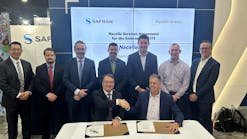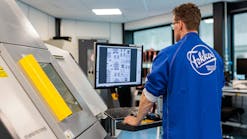Airbus Partnership Indicates Route to Feasible Hydrogen Aircraft, Says GlobalData
Airbus has long been a leading company in the hydrogen aircraft theme and is in the process of developing three new aircraft powered by hydrogen. Its recent partnership with CFM International (a subsidiary of GE and Safran) will use a converted A380 with a hydrogen combustible engine and is a major step in the development of these aircraft. This program will develop hydrogen combustion technology instead of powering fuel cells with hydrogen – a route which other companies are pursuing as a viable option, says GlobalData, the leading data and analytics company.
William Davies, associate analyst at GlobalData said, “The development of this engine will be critical to Airbus’ ongoing ZEROe program, which aims to produce a commercial hydrogen aircraft by 2035. This partnership will expand Airbus’ technical capabilities and will enhance hydrogen’s disruptive capabilities, which may end in the replacement or overhaul of existing commercial aircraft. Given that Airbus do not manufacture engines for its own aircraft, this partnership indicates that it sees CFM as being a strong candidate for production of hydrogen-powered engines.”
GlobalData’s thematic report, "Hydrogen Aircraft (Market Size, Advancements and Key Programs)," explains that the development of hydrogen as a feasible alternative fuel in aerospace faces significant barriers in its development, partially in the development of the technology and the creation of new aircraft that can operate using it, as well as in infrastructure. This report also lists Airbus as a leading company in the sector, as it is one of the few companies explicitly investing in the technology for the purposes of commercial aircraft.
Davies adds: “Hydrogen aircraft are relatively far from realization. Although several companies including ZeroAvia have managed to conduct short flights powered by hydrogen, but they are far from the scale required to power a jet such as the A380. This aircraft was likely selected due to the large amount of internal space necessary for carrying a hydrogen fuel source.
“Hydrogen aircraft are only one source of sustainable aviation, but Airbus’s investment in this sector puts the company at odds with competitors including Boeing which has focused more on sustainable aviation fuel (SAF) made from sources including food waste. Boeing’s concern is likely that hydrogen is less viable than SAF, and that SAF can be utilized by existing aircraft whilst hydrogen will require the creation of new models to enable it.”
Hydrogen has some way to go to reach viability, but this partnership shows that Airbus is committed to its development and confident that it will be a market changing force.




